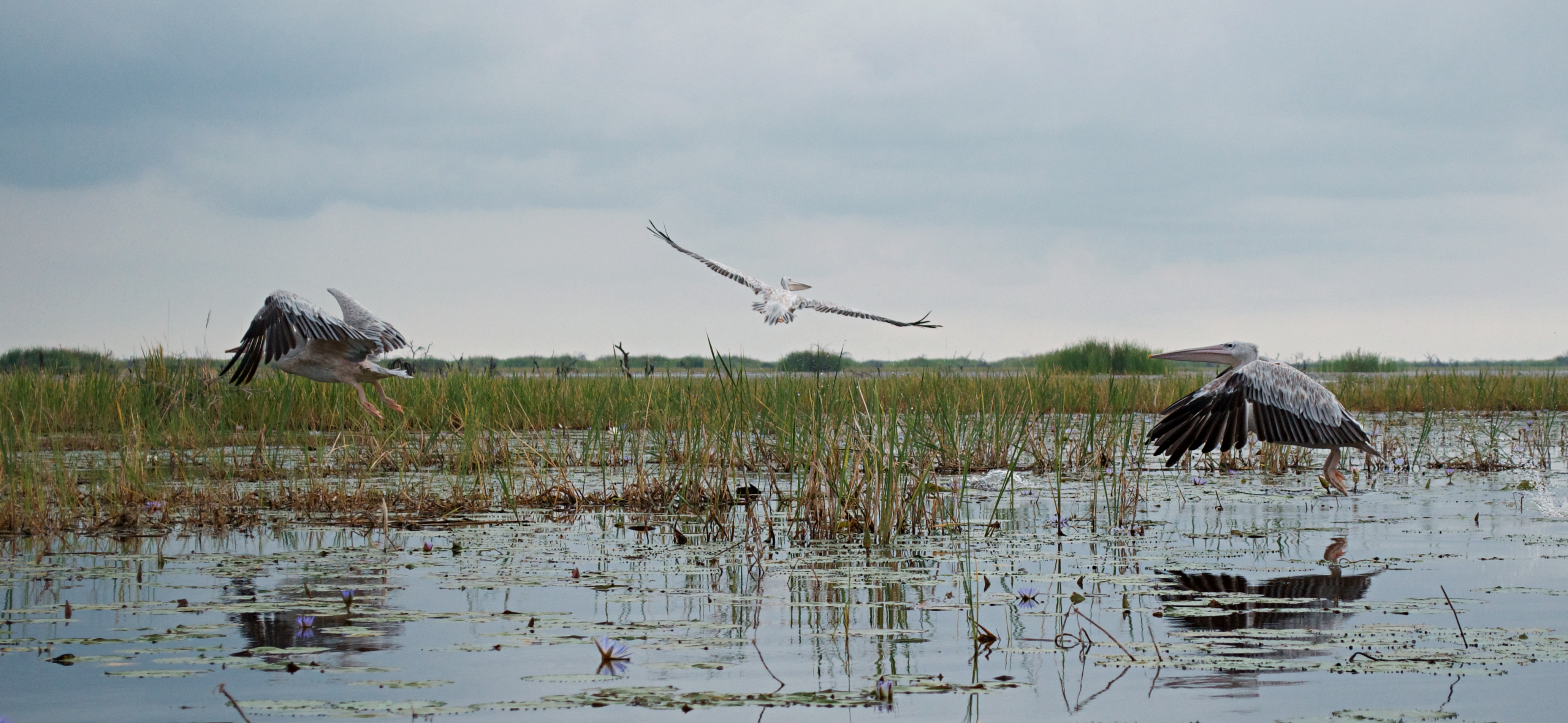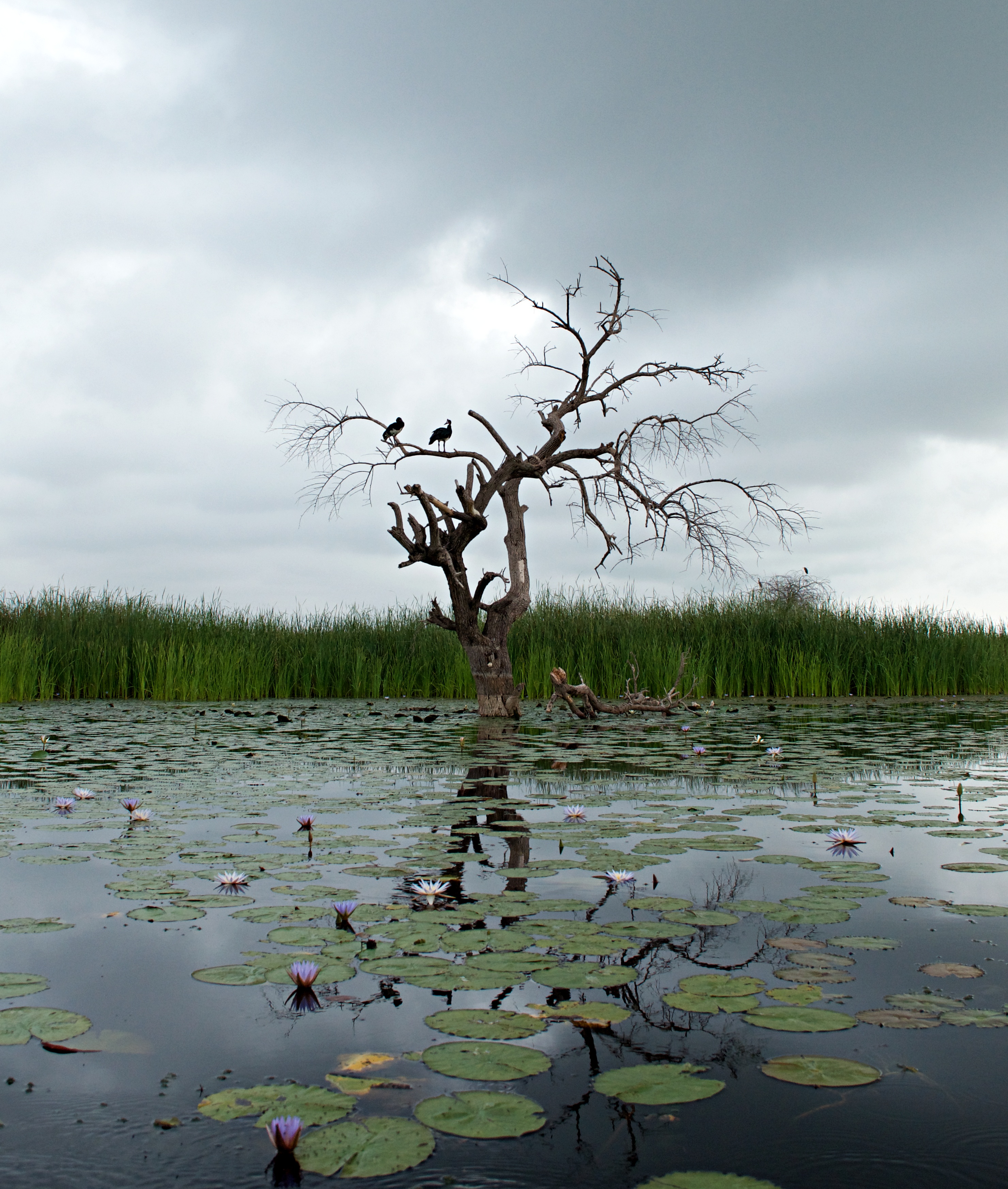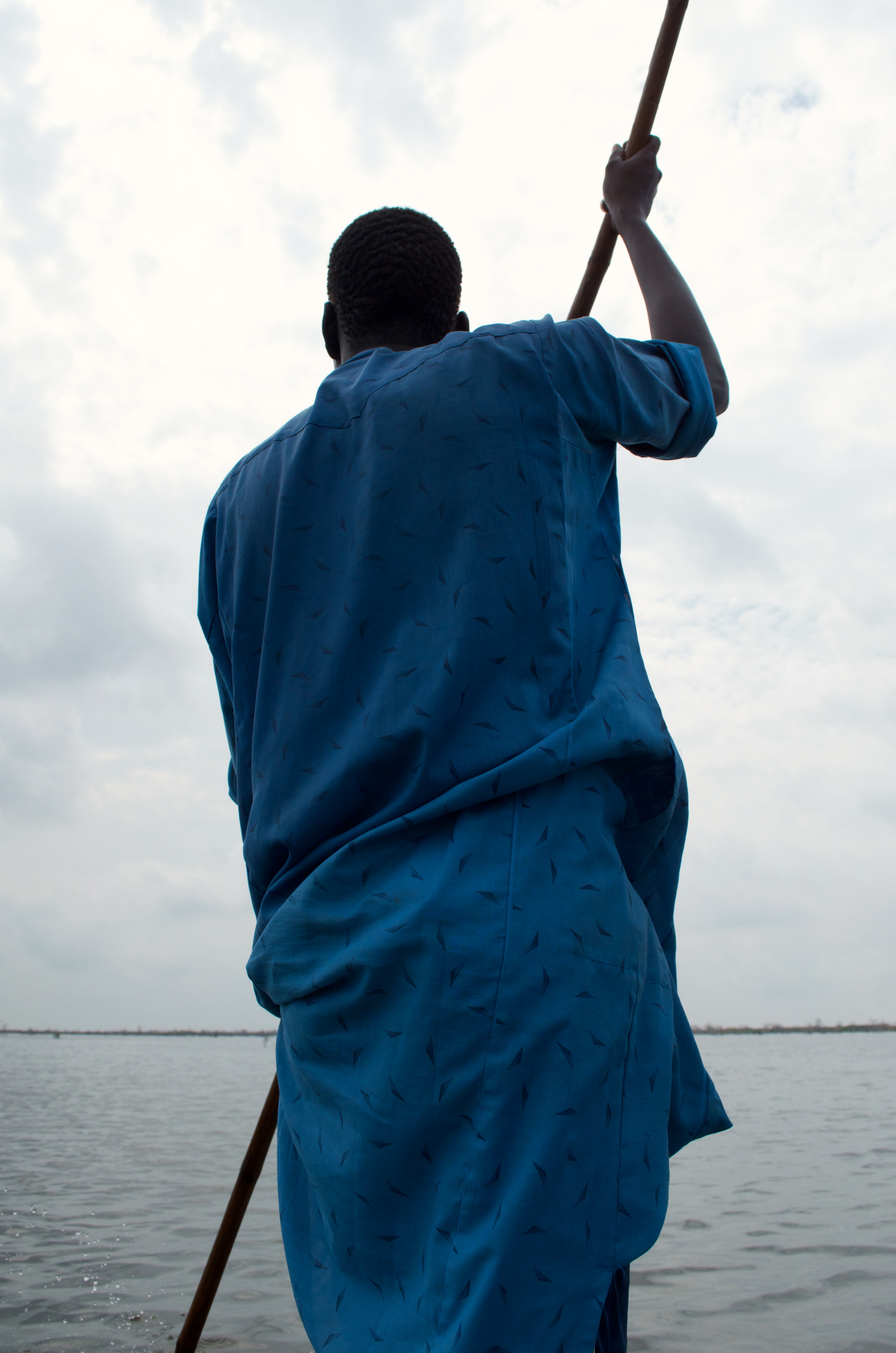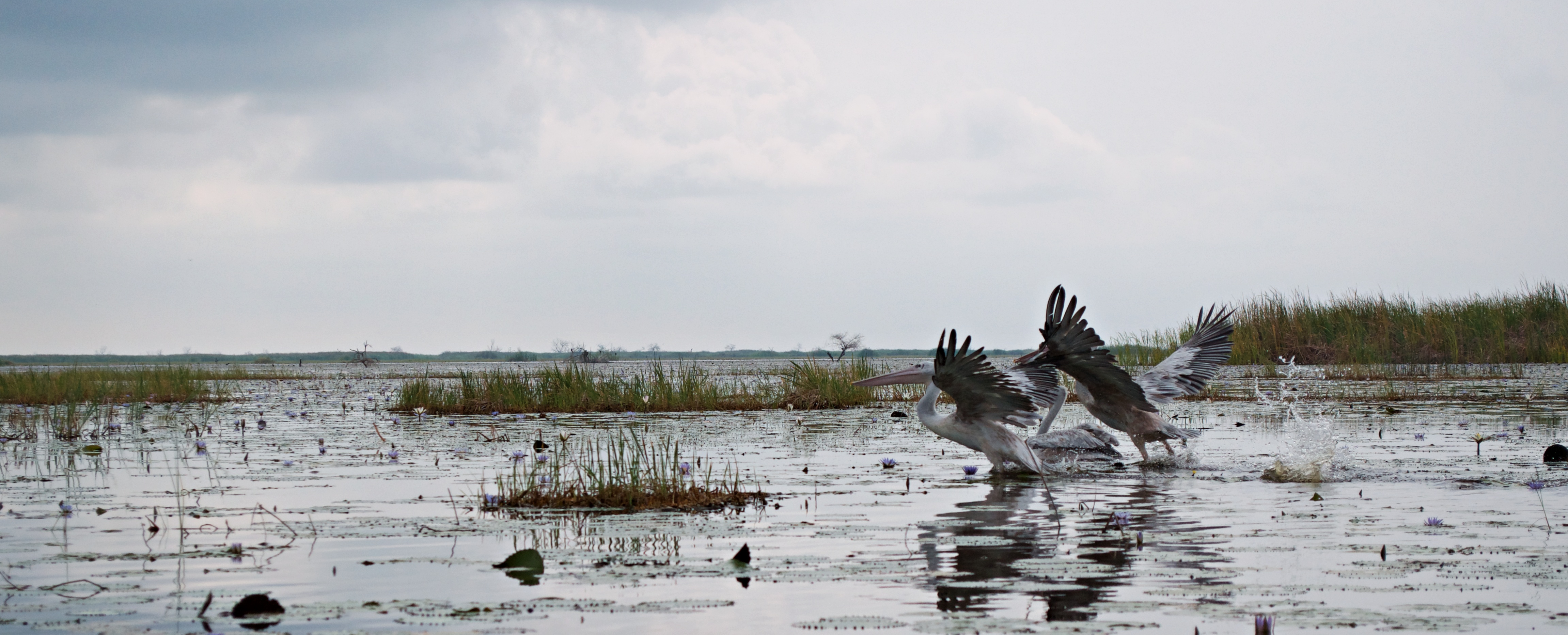It is half seven as James, a driver with Concern Worldwide's South Sudan team, knocks on the door of my temporary bedroom in the Humanitarian Hub in Bentiu. I am eagerly awaiting his arrival, as today I am visiting one of our most remote program locations in South Sudan.
In 2021, Kuer Latjor got cut off from the rest of the county by severe floods. Situated in the swamp, the entire county is often flood-affected, and many of our programs focus on flood resilience. However, for Kuer Latjor, the floods shaped lives for years to come.
Since the floods, Kuer Latjor has become an island sitting on slightly higher ground between the river and the flooded swamp. The village hosts around 670 households, housed in several collections of tukuls.
Concern Worldwide started operating in the area when it was still attached to the mainland. As fast as the water table increased, so did the needs of the local population when the flood cut them off.
Today, Kuer Latjor is only reachable by small gondola. Despite the obvious operational challenges, Concern decided to continue the much-needed response in the area. By gondola, Concern is delivering health, nutrition and WASH services to the village.
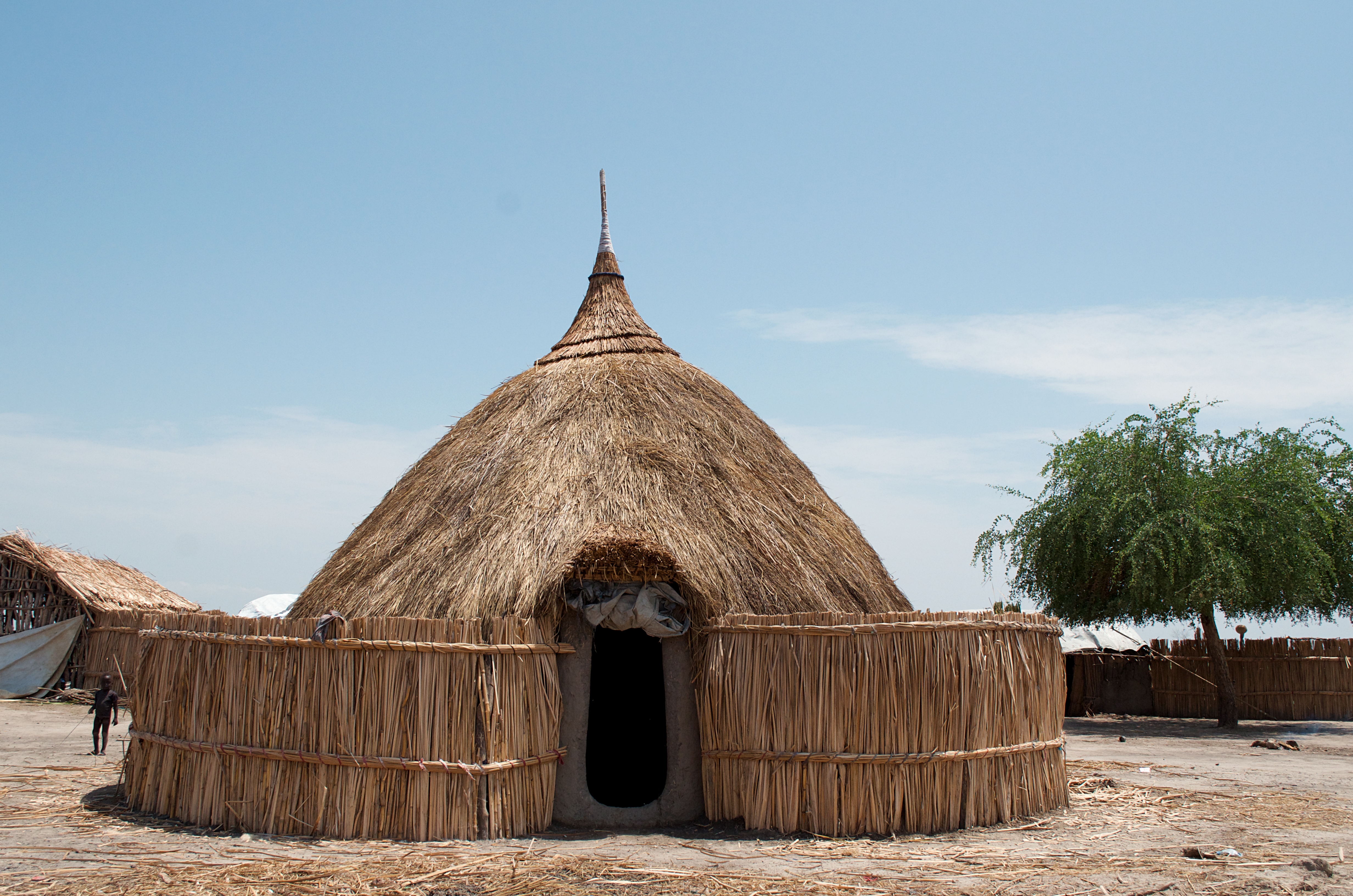
James drives us to Thoan. There, Riak, the Concern Gondolier, is already waiting for us. We say goodbye to James, and Sudan, Concern’s Nurse and I embark the small gondola. It will take us three hours to reach the health facility.
The gondola is a basic design, and I have been warned the trip can be uncomfortable. It is easy to forget any discomfort once one sees the breathtaking scenery unfolding before our eyes. Five minutes into the trip the world has gone completely silent, safe for the sound of a thousand birds.
As we move, Sudan tells me about the land and the people:
“All this water was land before the floods. People used to live here. We are floating through their villages now. Now, these people are displaced to other areas. Some came to Kuer Latjor as well.”
We pass a man collecting water lilies in a local boat.
“When food is scarce, people collect water lilies and eat the roots,” Sudan tells me. “They do not taste good, but sometimes this is all there is.”
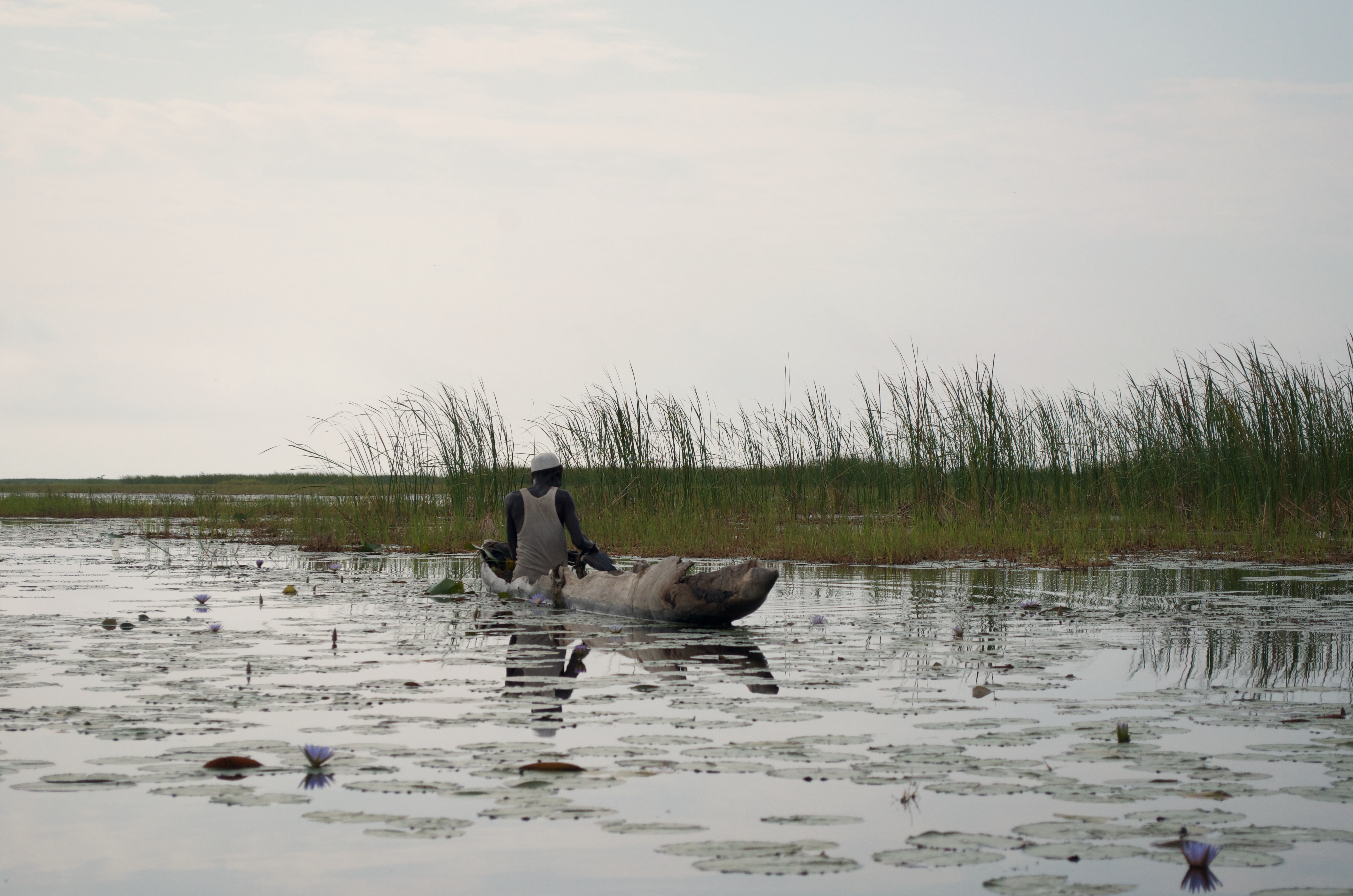
The gondola is moved using a long pole. I can see on Riak’s face it is hard work. Sudan tells me:
“We have a motorized vessel, but the water here is too shallow. Only with the gondola we can reach the village now, but we are nearly there. You can see the tops of the tukuls there.”
As we climb ashore, we are greeted by a group of curious children.
“In Nuer language, you can say ‘maale’ to greet someone. If someone greets you first, you respond with ‘maale migoah,’” Sudan tells me.
Every time I respond with maale migoah to a greeting, I am stirring a round of laughter. Sudan smiles:
“They do not expect you to know this."
At the health facility we are greeted by our team on the ground, consistent of a midwife, nutrition officer, a nutrition assistant, a nurse, and vaccinator.
“You caught us busy,” they say apologetically, indicating the small waiting room full of people.
Sudan immediately jumps in to help, while I have a look around. Two women are admitted for severe watery diarrhea. Both of them receive intravenous fluids to contravene dehydration, before receiving treatment with medication.
I look around in the old hut which serves as the healthcare unit. It is compartmentalized in three separate rooms, but without doors. There is no privacy, and hardly any space for treatment.
“I actually have a patient,” says the midwife, “but she said she is coming back later once these people have left.”
The consultation bed of the midwifery section is currently occupied. I sense the hardship of both the patients and the team.
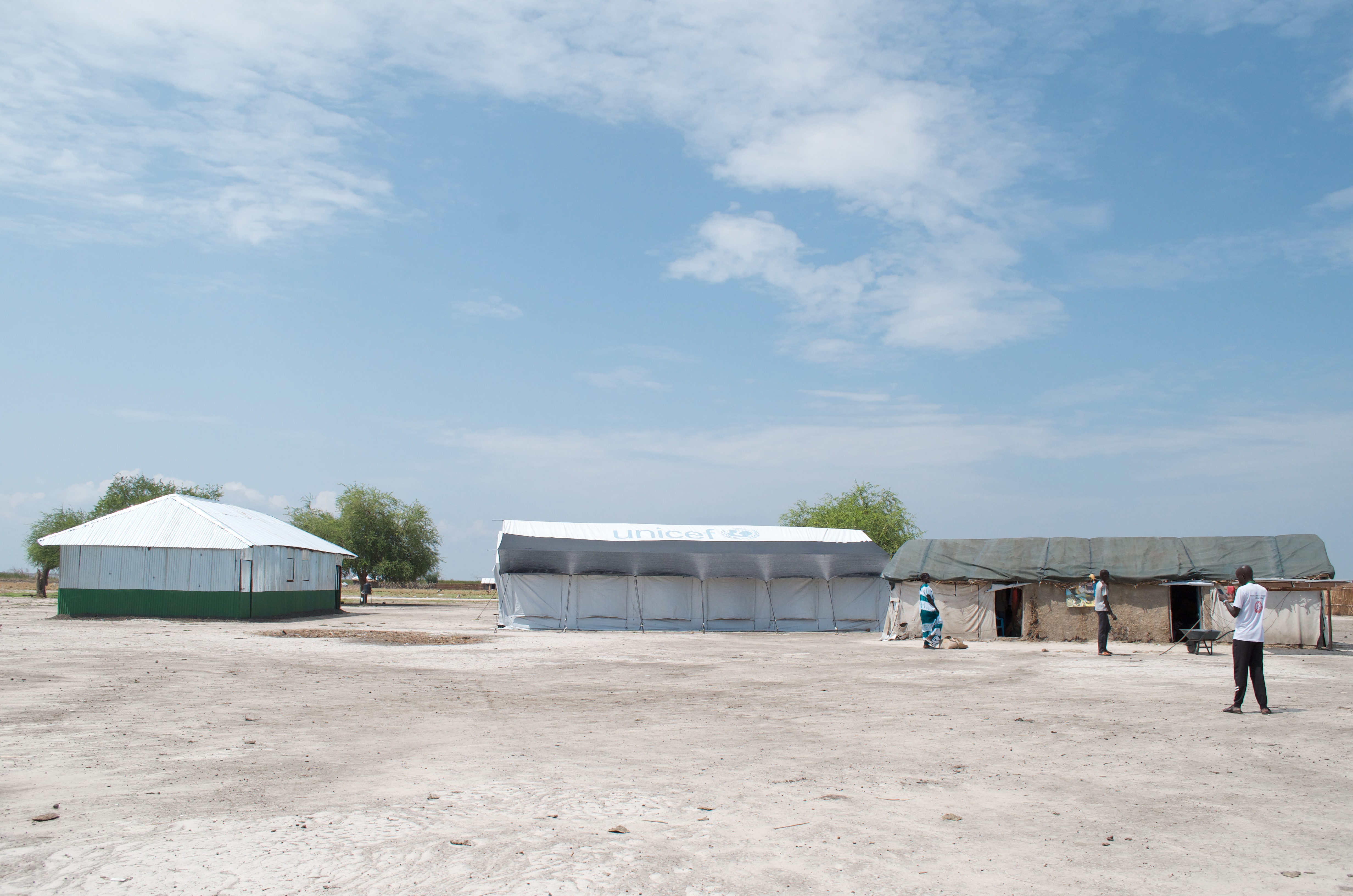
Presently, supported by the European Commission, as well as WFP and Unicef, Concern is finalizing the establishment of a new healthcare unit, nutrition site, and sanitary facilities. But until these are ready to be used, the team and patients all share this small local hut.
While the team continue with the patients, I take a moment to step outside and have a look around the site. The old hut is supplied with power using a solar system. That way, despite the remoteness of the site, the team is able to run a fridge ensuring a functioning ‘cold chain’, meaning vaccinations can be stored, and administered at the correct temperature. The new construction, as well as a medical tent provided by Unicef, are ready to move into. The latrines have been finalized as well.
As I stand there I take a moment to realise that everything I see, to the last nail, was delivered by the small gondola I just disembarked. Pushed to Kuer Latjor by Riak the gondolier.
I feel deeply grateful for the team who manage to work under such circumstances. Moreover, I feel strong appreciation towards ECHO, our funder for this site, who accepted these difficult logistical circumstances, and put the needs of the people in the forefront. Implementing a programme here comes with a lot of risks and challenges. This may make it difficult to find agencies that want to finance work here.
Inside, I discuss these challenges with the midwife. She agrees with me on the fact that the newly established health center is going to make a big difference for both the patients and the team, telling me:
“We will be able to do our work in the center which has more space. There, we can give our patients the privacy and dignity they deserve. But, there is still so much we need to improve on. Especially my midwifery section lacks key items. Even a delivery bed we need. Right now, women give birth on the ground or on ordinary beds, and we use our own muscle power to keep the women in the correct position.”
"The delivery bed is on its way,” I reassure her.
After an hour and half it is already time again to start moving towards the mainland. We need to reach the base back on time before curfew starts. We say goodbye to the team on the ground and start our walk back to the gondola.
The villagers curiously look outside their huts as we pass. Some children ask me to take their photo. In one hut, a group of women invite us to their lunch of fresh fish. Such kindness, in a place where people really have so little.
Back in the Humanitarian Hub I have a chat with Khurshid Wisal, the Concern Area Coordinator for Unity State. I compliment him on the hard work under these tough conditions. He tells me that:
“Actually, the work we do in Kuer Latjor is fantastic, you are right, we really make a difference there. But, you have seen the village now. You see there is no clean water source. For the medical treatment we can boil water, this is not the problem. However, as long as we do not provide the people at household level with clean water, we are just fighting symptoms here.
Khurshid continues:
If we want to make a real difference, we need to find a way to build a clean water supply system over there. As long as we do not do this, we will see a constant reoccurrence of diarrhea. Whom we treat today, we will see again after a few weeks. It is only a matter of time. This is why, in Concern, we always aim for full integration and completeness of services. In a context such as South Sudan, healthcare is incomplete if there is no complementary nutrition and water programme.”
“So what is stopping us?” I ask him.
“Well, all our water supply systems are built using heavy machines which are transported over the road. We cannot bring them there by Gondola. There might be a way to bring a team there to operate a manual rigging machine. This system does exist, but we need to see if such a system has been used in South Sudan, and whether or not the conditions were suitable for the operating of this manual drill. If we find a way, we will bring water to Kuer Latjor.”
As Concern Worldwide, to ensure long-lasting impact we hope that our frontline determination will be matched with donor flexibility and innovation, enabling us to facilitate aid that delivers and matters.
